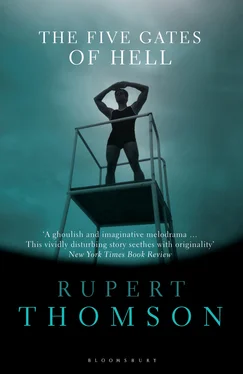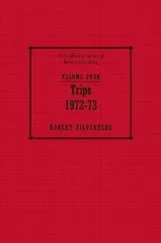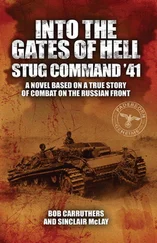Rupert Thomson - The Five Gates of Hell
Здесь есть возможность читать онлайн «Rupert Thomson - The Five Gates of Hell» весь текст электронной книги совершенно бесплатно (целиком полную версию без сокращений). В некоторых случаях можно слушать аудио, скачать через торрент в формате fb2 и присутствует краткое содержание. Год выпуска: 2012, Издательство: Bloomsbury UK, Жанр: Современная проза, на английском языке. Описание произведения, (предисловие) а так же отзывы посетителей доступны на портале библиотеки ЛибКат.
- Название:The Five Gates of Hell
- Автор:
- Издательство:Bloomsbury UK
- Жанр:
- Год:2012
- ISBN:нет данных
- Рейтинг книги:3 / 5. Голосов: 1
-
Избранное:Добавить в избранное
- Отзывы:
-
Ваша оценка:
- 60
- 1
- 2
- 3
- 4
- 5
The Five Gates of Hell: краткое содержание, описание и аннотация
Предлагаем к чтению аннотацию, описание, краткое содержание или предисловие (зависит от того, что написал сам автор книги «The Five Gates of Hell»). Если вы не нашли необходимую информацию о книге — напишите в комментариях, мы постараемся отыскать её.
The Five Gates of Hell — читать онлайн бесплатно полную книгу (весь текст) целиком
Ниже представлен текст книги, разбитый по страницам. Система сохранения места последней прочитанной страницы, позволяет с удобством читать онлайн бесплатно книгу «The Five Gates of Hell», без необходимости каждый раз заново искать на чём Вы остановились. Поставьте закладку, и сможете в любой момент перейти на страницу, на которой закончили чтение.
Интервал:
Закладка:
Rupert Thomson
The Five Gates of Hell
FOR ROBIN AND FOR KATE
Let the wicked fall into the traps they have set, whilst I pursue my way unharmed.
— PSALM 141And they all went to heaven in a little rowboat …
— AMERICAN CLAPPING SONG~ ~ ~
There was an old sailors’ graveyard in Moon Beach. It was the place where the funeral business first put down its roots. Over the graveyard wall, between two warehouses, you could just make out the Witch’s Fingers, four long talons of sand that lay in the mouth of the river. Rumour had it that, on stormy nights a century before, they used to reach out, gouge holes in passing ships, and drag them down.
There was one funeral director, supposedly, who used to put lamps on the Fingers and lure ships to their doom.
But times had changed. There hadn’t been a wreck for years, and all the funeral parlours had moved downtown …
There were very few land burials in Moon Beach any more. It was considered old-fashioned and unhealthy, it was something that only happened to the poor. Instead, the dead were buried in ocean cemeteries, twelve miles out. A special festival was held every year in their honour. Children loved it. Suddenly there were white chocolate bones everywhere and marzipan skulls and ice-cream coffins on a stick. There were costume parties too. You had to wear something blue because that was the colour people went when they were buried under the sea. You could paint your hands and face if you liked, or even dye your hair. That’s what people did in Moon Beach. Turned blue once a year.
And then, sooner or later, they turned blue for ever …
One
The Jets
The first time Nathan had the dream, he was staying at his aunt’s house on the Cape.
He was standing on a barren plain with his sister, their hands linked as if to cross a road safely, the way they’d been taught. There were no roads, though, not in this place, no human markings of any kind. No trees either. No scrub. Just dust and stones, distant mountains, brutal sun.
Then, in the distance, a mirror-flash of silver and the jets came tearing through the membrane of the sky. The air turned to sound, there was nothing left to breathe, and in his ears the stammer of machine guns as the bullets scuffed the dust around their feet, raised rows of ghostly plants that grew one after another in the dry ground, hung in the air, then crumbled, and their hands were pulled apart, and they scattered, screaming, limbs of water, breath like saws attacking wood.
He woke up. Listened for his sister’s breathing through the half-open door. Couldn’t hear anything. Listened for his father’s slightly faster breathing through the thin wall to the right. Couldn’t hear anything. He could hear another kind of breathing. A breathing he didn’t recognise. Rasping, sucking, rattling. Lungs like chains. The sea.
He opened his eyes. Everything was white and pale-blue. Curtains decorated with anchors and mermaids, the steering wheels of ships. The skull of a seagull above the bed, a silver coin winking where the right eye used to be. A heap of shells unsorted on the rug, the shells he’d found only the day before. He was in the wrong house. He was staying with his Aunt Yvonne. 121 Ocean Drive, Hosannah Beach, The Cape. He repeated the address to himself, scarcely moving his lips. Dad had told him to learn it, in case he got lost.
Dad.
Nathan’s mind slipped back to the sunlit afternoon a month ago, the reason he was here now. He saw himself halfway up the hill. He smelt the melting road, the tar as soft as fudge, you could leave a footprint if you pressed hard enough. The melting road, the trees heavy in the heat. He could even feel the sweat trickling under his grey school shirt. He looked back down the hill, and shouted, ‘Georgia, come on .’
He walked home from school with Georgia every day. It usually took about half an hour, but that was her fault. She was so slow. Alone he could’ve walked it in fifteen minutes. He stared back down the hill. Look at her. She wasn’t even trying. She was just standing there, one fist pressed to the corner of her mouth. She was probably crying. He supposed he must’ve upset her or something. The hill, it was always the worst part.
He muttered ‘Jesus’ under his breath, a new word and just about strong enough for what he felt, and, heaving a sigh, began to retrace his steps. He wished he could just leave her behind, it wasn’t far to the house now, another five minutes, but he’d promised, Dad had made him promise, and what if something happened? There were people called strangers and you talked to them and then something happened. He didn’t know what that something was. It was too bad to even talk about. He reached Georgia and stood looking down at her. He could only see the top of her head. ‘What’s wrong now?’
‘You left me.’
He didn’t say anything. Instead, he watched a thick chalk line grow longer in the sky. When you screwed up your eyes you could just make out the tiny silver speck of the plane. He tried to imagine the man inside that tiny silver speck and a shiver slid up his spine and vanished into the short hairs at the back of his neck. He wondered how fast the plane was going. Five hundred? A thousand? He looked down into Georgia’s face, her wet eyelashes, her trembling lower lip. If you were a plane, he thought, we’d be home by now. We’d’ve been home hours ago. He looked at his sister and wished she was a plane.
‘You left me,’ she said again.
‘I didn’t mean to,’ he said. ‘It’s just you’re so slow.’
‘I’m five. If you were five you’d be slow.’
‘Not as slow as you.’
Georgia scowled. She wiped one eye with her sleeve and turned and stared back the way they’d come.
‘I hate this road.’
He took her hand. ‘Come on, George. Just walk.’
‘My legs hurt.’
‘Don’t think about your legs, just walk. It’s not much further now.’
He played the game where you have to step in between the cracks on the sidewalk, except he invented a new forfeit: if you stepped on a crack you had to run three paces. He knew that in games Georgia always did the things you weren’t supposed to do; she couldn’t resist treading on the cracks and so she kept having to run three paces and they reached the top of the hill without her even noticing.
That was the hard part over. From the crest of the hill you could see the corner of Mahogany Drive, which was where they lived. Another hundred yards and they’d be home. Still, he must’ve let go of her hand again, because he was alone when he turned into the driveway and saw Aunt Yvonne’s station wagon parked outside the front door.
He ran back to the gate. ‘Guess what, George.’
Fifty yards away, Georgia stopped, looked up. She was too tired to guess what.
‘Aunt Yvonne’s here,’ he said. ‘Come on.’
But he couldn’t wait for her. He ran into the house through the back door, and it was like running from day into night, his voice sounded far away and he couldn’t see, only the dim shape of Dad with his head in his hands, and his aunt’s voice somewhere overhead.
‘Your mother’s dead,’ she told him, and he cried because the word had such a dull, empty sound.
She tried to explain. ‘When someone dies,’ she said, ‘they go away.’
‘When do they come back?’
‘They don’t,’ she said. ‘They don’t come back.’
She seemed to want him to ask more questions, but he couldn’t think of any. He stared at his shoes, the toes pale from kicking stones.
Читать дальшеИнтервал:
Закладка:
Похожие книги на «The Five Gates of Hell»
Представляем Вашему вниманию похожие книги на «The Five Gates of Hell» списком для выбора. Мы отобрали схожую по названию и смыслу литературу в надежде предоставить читателям больше вариантов отыскать новые, интересные, ещё непрочитанные произведения.
Обсуждение, отзывы о книге «The Five Gates of Hell» и просто собственные мнения читателей. Оставьте ваши комментарии, напишите, что Вы думаете о произведении, его смысле или главных героях. Укажите что конкретно понравилось, а что нет, и почему Вы так считаете.












